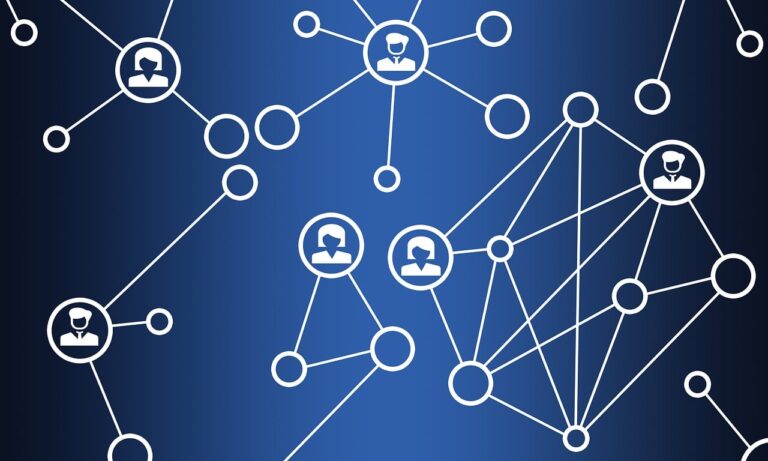Unleashing Your Potential: The Power of Personal Responsibility in Leadership and Growth
Taking Ownership: The Key to Unlocking Personal Growth
In our quest for personal growth and self-improvement, we often seek guidance and advice from experts, mentors, and thought leaders. We look for that perfect plan, that foolproof strategy to help us achieve our goals, whether it’s losing weight, becoming financially stable, enhancing our leadership skills, navigating difficult conversations, or becoming more engaged parents. We crave the roadmap, the step-by-step instructions that will lead us to success.
However, there is a fundamental truth that we must acknowledge: no matter how impeccable the plan, how detailed the instructions, or how wise the advice, it ultimately falls upon us to take action and follow through. We can receive the most brilliant blueprint for personal development, but without our commitment, determination, and personal responsibility, it remains nothing more than ink on paper.
Consider the scenario of embarking on a weight loss and strength-building journey. A knowledgeable trainer can provide a comprehensive plan tailored to our specific needs, outlining the exercises, the nutrition guidelines, and the recommended lifestyle changes. Yet, even the most meticulously crafted plan cannot lift weights or jog on the treadmill in our place. We must take responsibility for our own physical well-being, making the conscious decision to adhere to the plan, showing up at the gym, pushing ourselves to the limits, and making healthier choices in our daily lives.
Similarly, when it comes to financial matters, we can seek expert advice on how to better spend, save, and invest our money. Financial advisors can offer strategies, investment portfolios, and budgeting techniques to set us on the path to financial stability and wealth accumulation. However, it is ultimately our responsibility to follow through on the advice given, to exercise discipline in our spending habits, to save consistently, and to make informed investment decisions. Without our active engagement and personal responsibility, even the soundest financial plan remains mere words on a page.
In the realm of leadership development, the same principle applies. Leadership experts can equip us with the knowledge, skills, and frameworks to become effective leaders. They can outline the qualities of great leaders, the communication techniques, and the strategies for inspiring and motivating teams. However, true leadership growth can only occur when we assume personal responsibility for our own development. We must take the initiative to apply what we learn, to practice self-reflection, and to continually refine our leadership skills through experience and learning from our successes and failures.
Furthermore, personal responsibility plays a vital role in navigating difficult conversations. We may receive guidance on how to approach challenging discussions, with advice on active listening, empathy, and conflict resolution techniques. Yet, it is up to us to take ownership of our emotions, to control our reactions, and to initiate and engage in these conversations with courage and empathy. No one else can do it for us; we must accept the responsibility for engaging in these crucial dialogues and fostering understanding and growth.
Even in the realm of parenting, where we strive to be more engaged and effective parents, we must recognize that the responsibility lies within ourselves. Parenting experts can offer guidance on effective parenting techniques, fostering healthy relationships with our children, and instilling values and discipline. However, it is our responsibility to actively engage with our children, to create meaningful connections, and to embody the qualities we wish to see in them. We must embrace the responsibility of being present, nurturing, and guiding parents, recognizing that our actions speak louder than words.
The common thread that runs through these various areas of personal growth is the undeniable truth that the only person who can truly make us better is ourselves. No matter how brilliant the plan, how wise the advice, or how profound the insights, we must be willing to make the decision, take action, and do the work required. It is in taking responsibility for our growth that true transformation begins.
In this article, we will delve deeper into the concept of personal responsibility and its profound impact on personal growth and leadership development. We will explore the different areas of life where personal responsibility is paramount, providing insights, strategies, and inspiring examples along the way. By embracing personal responsibility, you can unlock your true potential, become a better leader, and cultivate a life of purpose and fulfillment. The journey begins when you make the conscious choice to take ownership of your own growth.
Understanding the Role of Personal Responsibility
In our quest for personal growth and leadership development, it is essential to gain a deep understanding of the role that personal responsibility plays in our journey. Personal responsibility can be defined as the conscious decision to take ownership of our thoughts, actions, and outcomes. It is the recognition that we are the primary drivers of our own lives and that we have the power to shape our future through our choices and behaviors.
It is crucial to differentiate personal responsibility from external influences or circumstances. While external factors certainly have an impact on our lives, personal responsibility focuses on how we respond to those factors and take control of our own growth. It is about understanding that, despite the challenges and obstacles we may face, we have the ability to choose our attitude, our actions, and our mindset.
When we embrace personal responsibility, we move from a mindset of victimhood or blaming others to one of empowerment and agency. Instead of waiting for external circumstances to change or for someone else to come and rescue us, we recognize that the power to change resides within ourselves. We become active participants in our own lives, accountable for our choices and committed to our growth.
Personal responsibility is intricately linked to leadership development. Effective leaders understand that they are ultimately responsible for their own growth and the growth of their teams. They don’t wait for others to provide them with all the answers or solutions but actively seek out opportunities for learning, self-improvement, and personal development.
By taking responsibility for their own growth, leaders set a powerful example for their teams. They create a culture of accountability, where each team member recognizes their role in achieving shared goals and takes ownership of their responsibilities. This cultivates a sense of ownership, motivation, and commitment within the team, leading to higher levels of engagement and performance.
Personal responsibility also entails a commitment to continuous learning and self-reflection. It involves seeking feedback, being open to new perspectives, and embracing challenges as opportunities for growth. Leaders who take responsibility for their own development actively seek out mentors, coaches, and resources to enhance their skills and knowledge. They understand that their leadership effectiveness directly correlates with their willingness to invest in their personal growth.
Moreover, personal responsibility extends beyond individual development. It encompasses how we show up in our relationships, both personal and professional. Taking responsibility for our actions and the impact they have on others is crucial for building trust, fostering collaboration, and creating positive environments.
When we take responsibility for our behavior in difficult conversations, for instance, we approach them with a willingness to listen, understand, and find common ground. By taking ownership of our emotions and reactions, we create a space for productive dialogue and resolution. This not only strengthens relationships but also paves the way for personal growth and mutual understanding.
In summary, personal responsibility forms the foundation for personal growth and effective leadership. By embracing personal responsibility, we recognize our agency in shaping our lives and the impact we have on others. We move from a mindset of victimhood to one of empowerment, actively seeking opportunities for growth, taking ownership of our actions, and committing to our personal and professional development. In the following sections, we will explore how personal responsibility manifests in specific areas of life and provide practical strategies for embracing it fully.
Embracing Personal Responsibility for Health and Fitness
The importance of taking ownership of one’s physical well-being
When it comes to health and fitness, personal responsibility is paramount. Our physical well-being directly impacts our quality of life, energy levels, and overall productivity. By embracing personal responsibility for our health, we make a conscious commitment to prioritize self-care, adopt healthy habits, and invest in our long-term well-being.
The correlation between following a plan and achieving weight loss and strength gain
While there is no shortage of diet plans, exercise routines, and fitness advice available, the key lies in our willingness to follow through with them. Personal responsibility requires us to adhere to a plan consistently, whether it’s following a specific diet, committing to regular exercise, or making healthier lifestyle choices.
It’s important to recognize that following a plan is not a guarantee of immediate results. It requires discipline, perseverance, and a long-term commitment. By embracing personal responsibility, we acknowledge that our actions and choices directly influence the outcomes we achieve. We understand that consistent effort, even when faced with challenges or setbacks, is necessary for sustainable weight loss and strength gain.
The benefits of personal discipline and commitment in fitness goals
Personal responsibility in health and fitness goes beyond simply following a plan. It encompasses the development of personal discipline and commitment to our goals. This means staying motivated, even when faced with temptations or obstacles. It means making choices aligned with our long-term health objectives, even when it’s easier to opt for short-term gratification.
By taking ownership of our health, we become more aware of our habits and behaviors. We cultivate a mindset of self-discipline, setting clear boundaries and making intentional choices that support our well-being. This discipline extends beyond the gym or the kitchen; it permeates all aspects of our lives, fostering resilience, determination, and a sense of accomplishment.
Through personal responsibility, we also gain a deeper understanding of the intrinsic motivation behind our health and fitness goals. It becomes more than just a desire to lose weight or build strength; it becomes a commitment to living a healthier, more fulfilling life. This shift in mindset helps us stay focused, overcome obstacles, and maintain long-term success.
By embracing personal responsibility for our health and fitness, we not only improve our physical well-being but also set an example for others. Our dedication and commitment inspire those around us, fostering a culture of health and wellness in our communities, families, and workplaces.
In the following sections, we will explore how personal responsibility applies to other areas of our lives, including financial well-being, leadership development, navigating difficult conversations, and parenting. Through each of these lenses, we will uncover the transformative power of personal responsibility and the role it plays in shaping our personal growth and leadership effectiveness. Remember, the decision to embrace personal responsibility starts with you, and it is the catalyst for transformative change.
Taking Charge of Financial Well-being
Recognizing the significance of personal responsibility in financial matters
Financial well-being is a crucial aspect of our lives that requires personal responsibility. It encompasses how we earn, spend, save, and invest our money. By taking charge of our financial well-being, we empower ourselves to make informed decisions, achieve financial stability, and create opportunities for future growth.
Personal responsibility in financial matters starts with a mindset shift. It involves acknowledging that we are the architects of our financial future and that our financial success is largely determined by the choices we make. By embracing personal responsibility, we become active participants in managing our finances rather than relying on external factors or luck.
Exploring the link between following a financial plan and achieving financial stability
Following a well-crafted financial plan is a powerful tool for achieving financial stability. A financial plan outlines our goals, budgets, and investment strategies, providing a roadmap for our financial journey. However, it is our responsibility to follow through with the plan and make the necessary adjustments along the way.
Taking personal responsibility in financial matters means adhering to the budget we set, making conscious spending choices aligned with our priorities, and avoiding unnecessary debt. It also involves regularly monitoring and evaluating our financial progress, ensuring that we stay on track towards our goals.
The impact of disciplined spending, saving, and investing habits
Personal responsibility requires discipline in our spending, saving, and investing habits. It involves making conscious decisions to prioritize saving and investing for the future, rather than succumbing to impulsive spending or instant gratification.
By developing disciplined financial habits, such as automating savings, tracking expenses, and living within our means, we lay the foundation for long-term financial success. Personal responsibility compels us to resist the temptation of overspending, to prioritize our financial goals, and to invest wisely for the future.
Moreover, personal responsibility in financial matters extends beyond our own well-being. It involves recognizing our responsibility to support our families, contribute to our communities, and make a positive impact through our financial choices. By embracing personal responsibility, we can align our financial decisions with our values, ensuring that our money serves not only our individual needs but also the greater good.
In summary, personal responsibility in financial matters is about taking ownership of our financial well-being, making informed choices, and committing to long-term financial stability. It requires discipline, conscious decision-making, and a mindset that recognizes the power we have to shape our financial future.
As we continue our exploration of personal responsibility in the following sections, we will uncover its relevance and application in leadership development, navigating difficult conversations, and parenting. By understanding and embracing personal responsibility in these various domains, we can unleash our full potential as leaders, foster meaningful connections, and create a positive impact on those around us. Remember, the power to transform your financial well-being lies within your personal responsibility and commitment to making informed choices.
Cultivating Leadership Skills through Personal Responsibility
Unveiling the connection between personal responsibility and leadership effectiveness
Leadership is not solely about holding a position of authority; it is about influencing and inspiring others to achieve collective goals. Personal responsibility plays a vital role in leadership effectiveness, as it shapes our behaviors, attitudes, and decision-making processes.
When we embrace personal responsibility as leaders, we recognize that our actions have consequences and that we are accountable for the outcomes we generate. We take ownership of our mistakes and learn from them, demonstrating integrity and trustworthiness. By accepting responsibility for our own growth and development, we model the behavior we expect from our team members, fostering a culture of accountability and continuous improvement.
Identifying key leadership traits and behaviors that require personal responsibility
Personal responsibility is intertwined with many key leadership traits and behaviors. Effective leaders take responsibility for their own learning and development, seeking out opportunities to enhance their skills and knowledge. They also take responsibility for building strong relationships with their team members, valuing open communication, empathy, and collaboration.
Leaders who embrace personal responsibility take ownership of their decisions and actions, considering the impact on their teams and stakeholders. They exhibit resilience and adaptability in the face of challenges, viewing setbacks as learning opportunities rather than failures. By demonstrating personal responsibility, leaders inspire their teams to do the same, creating a culture of accountability and empowerment.
Exploring case studies or examples of leaders who have exemplified personal responsibility
To further illustrate the transformative power of personal responsibility in leadership, we can examine case studies or examples of leaders who have embodied this principle. One such example is Nelson Mandela, who demonstrated immense personal responsibility during his struggle against apartheid in South Africa. Despite facing imprisonment and adversity, Mandela took responsibility for his own growth and education, emerging as a visionary leader who united a divided nation.
Another example is Indra Nooyi, the former CEO of PepsiCo. Nooyi exhibited personal responsibility by continuously seeking self-improvement, taking responsibility for her own learning, and leading with a strong sense of purpose. She emphasized the importance of personal accountability and encouraged her team members to take ownership of their work and contribute to the company’s success.
These examples highlight how personal responsibility is a driving force behind exceptional leadership. By taking ownership of their actions, decisions, and growth, these leaders have inspired others, transformed organizations, and made a lasting impact on society.
In the following sections, we will delve into the significance of personal responsibility in navigating difficult conversations and becoming more engaged parents. Through these lenses, we will further explore how personal responsibility fosters growth, strengthens relationships, and enhances our effectiveness as leaders. Remember, embracing personal responsibility as a leader is not only essential for your own growth but also sets the stage for the growth and success of your team and organization.
Navigating Difficult Conversations with Responsibility
Emphasizing the role of personal responsibility in effective communication
Difficult conversations are an inevitable part of life, both personally and professionally. They involve addressing sensitive topics, managing conflicts, and navigating challenging emotions. Personal responsibility plays a critical role in these conversations, as it influences our approach, mindset, and ability to create positive outcomes.
When we take personal responsibility for our communication, we recognize that our words, tone, and actions impact the conversation’s direction and outcome. We become accountable for our emotions and reactions, striving to communicate with empathy, respect, and clarity. By accepting responsibility for our part in the conversation, we can foster an environment of trust, openness, and constructive dialogue.
Providing a framework for approaching difficult conversations with accountability
To navigate difficult conversations successfully, it is essential to have a framework that promotes personal responsibility. One such framework is the approach advocated by renowned author and researcher Brené Brown, known as the “rumble” approach. This approach encourages individuals to take responsibility for their emotions and perspectives, engage in active listening, and approach conversations with curiosity and a willingness to understand differing viewpoints.
Taking personal responsibility in difficult conversations also entails being proactive in addressing issues rather than avoiding or deflecting them. It involves initiating conversations with empathy and seeking common ground, even in the face of disagreement. By embracing personal responsibility, we contribute to creating an atmosphere conducive to mutual understanding and resolution.
The potential benefits and outcomes of taking responsibility in challenging interactions
When we take personal responsibility in difficult conversations, we open the door to several potential benefits and outcomes. First and foremost, we foster trust and respect, creating an environment where individuals feel safe to express themselves honestly. This cultivates stronger relationships and encourages collaboration, enabling the resolution of conflicts and the discovery of creative solutions.
Moreover, personal responsibility empowers us to break down barriers and bridge differences. It allows us to approach conversations with a growth mindset, seeking opportunities for learning and personal development. By embracing personal responsibility, we can transform challenging conversations into opportunities for growth, understanding, and building stronger connections.
Additionally, personal responsibility in difficult conversations contributes to personal and professional growth. It enhances our emotional intelligence, communication skills, and conflict resolution abilities. By taking ownership of our part in the conversation, we gain insights into our own biases, triggers, and areas for self-improvement.
In summary, personal responsibility is instrumental in navigating difficult conversations effectively. By taking ownership of our communication, we create an environment of trust, empathy, and constructive dialogue. By approaching these conversations with accountability and a growth mindset, we open the door to resolution, personal growth, and strengthened relationships.
As we move forward in this article, we will explore the significance of personal responsibility in becoming more engaged parents. We will delve into strategies and approaches that empower parents to take ownership of their parenting journey, fostering a nurturing and supportive environment for their children’s growth and development. Remember, personal responsibility in difficult conversations not only enhances our effectiveness as leaders but also contributes to our personal growth and the strength of our relationships.
Enhancing Parenting Skills through Personal Responsibility
Recognizing the impact of personal responsibility on parenting effectiveness
Parenting is a complex and rewarding journey that requires personal responsibility. As parents, we have a profound influence on our children’s development, shaping their values, beliefs, and behaviors. By embracing personal responsibility in our parenting approach, we can create a nurturing and supportive environment that fosters their growth and well-being.
Personal responsibility in parenting begins with acknowledging that we play a pivotal role in our children’s lives. It involves recognizing that our actions, choices, and behaviors serve as powerful role models for them. When we take personal responsibility for our parenting, we actively engage in the process, seeking to understand and meet our children’s needs, and fostering their emotional, cognitive, and social development.
Strategies for becoming more engaged and responsible parents
To become more engaged and responsible parents, we can employ various strategies that embody personal responsibility:
-
Self-reflection: Personal responsibility starts with self-reflection. It involves examining our own beliefs, values, and behaviors, and understanding how they shape our parenting style. By reflecting on our strengths and areas for improvement, we can identify ways to become more effective parents.
-
Active listening and empathy: Taking personal responsibility in parenting means actively listening to our children and empathizing with their perspectives. It involves creating a safe and non-judgmental space where they feel heard, understood, and supported. By cultivating empathy, we can strengthen our connection with our children and foster open communication.
-
Consistency and setting boundaries: Personal responsibility in parenting includes being consistent in our expectations, rules, and consequences. By setting clear boundaries and consistently enforcing them, we provide structure and guidance to our children. This helps them develop a sense of responsibility, self-discipline, and accountability.
-
Continuous learning and growth: Embracing personal responsibility means recognizing that parenting is an ongoing learning process. It involves seeking knowledge, staying informed about child development, and being open to new approaches. By continuously learning and growing as parents, we can adapt to our children’s evolving needs and provide the support they require.
The long-term benefits of taking ownership of one’s parenting journey
Personal responsibility in parenting yields numerous long-term benefits for both parents and children. When we take ownership of our parenting journey, we create a nurturing and supportive environment that enhances our children’s well-being and overall development. They learn important life skills such as resilience, problem-solving, and emotional intelligence through our modeling and guidance.
Moreover, personal responsibility fosters a strong parent-child bond built on trust, respect, and open communication. It cultivates a sense of belonging and security, allowing our children to develop a positive self-image and healthy relationships. When we take personal responsibility as parents, we inspire our children to take responsibility for their own actions and choices, empowering them to become responsible, compassionate, and resilient individuals.
Additionally, personal responsibility in parenting promotes self-care and well-being for parents. By recognizing our own needs and taking care of ourselves physically, emotionally, and mentally, we become more effective and present parents. When we prioritize self-care, we model the importance of personal responsibility and teach our children the value of taking care of themselves.
Personal responsibility is integral to enhancing parenting skills and fostering healthy parent-child relationships. By taking ownership of our parenting journey, we create a supportive and nurturing environment where our children can thrive. Through self-reflection, active listening, consistency, continuous learning, and prioritizing self-care, we become more engaged and responsible parents. Remember, personal responsibility in parenting not only impacts our children’s lives but also contributes to our own personal growth and fulfillment as parents.
Overcoming Challenges and Building Resilience
Addressing potential obstacles to embracing personal responsibility
Embracing personal responsibility is not without its challenges. There are various obstacles that can hinder our ability to fully embrace personal responsibility in our lives. Some common obstacles include fear of failure, self-doubt, external pressures, and ingrained patterns of behavior.
To overcome these obstacles, it is essential to develop self-awareness and recognize the patterns and beliefs that hold us back. By acknowledging and challenging these limitations, we can begin to break free from their grip and embrace personal responsibility with greater confidence and determination.
Techniques for developing resilience and maintaining motivation
Resilience is a crucial quality in embracing personal responsibility. It is the ability to bounce back from setbacks, adapt to change, and persevere in the face of challenges. Developing resilience allows us to maintain motivation and continue taking responsibility for our actions, even when faced with obstacles or failures.
Techniques for building resilience include cultivating a growth mindset, practicing self-care, seeking support from others, and reframing challenges as opportunities for growth. By focusing on our strengths, learning from setbacks, and maintaining a positive outlook, we can develop the resilience needed to overcome obstacles and stay committed to personal responsibility.
Success stories of individuals who have transformed their lives through personal responsibility
Inspiring success stories of individuals who have embraced personal responsibility can serve as powerful examples of the transformative impact it can have on our lives. These stories demonstrate the resilience, determination, and growth that can be achieved through personal responsibility.
For instance, consider the story of J.K. Rowling, the author of the Harry Potter series. After facing numerous rejections and setbacks in her writing career, Rowling embraced personal responsibility and persevered. She took ownership of her dreams, continued writing, and ultimately achieved incredible success.
Another example is Mahatma Gandhi, who embraced personal responsibility in leading India’s struggle for independence. Gandhi took responsibility for his own actions and beliefs, inspiring millions with his commitment to nonviolence and social change.
These success stories remind us that personal responsibility is not always easy, but it can lead to profound personal transformation and achievement. By taking ownership of our lives, our choices, and our growth, we can overcome challenges, unlock our potential, and create a positive impact in the world.
In conclusion, personal responsibility requires overcoming obstacles and developing resilience. By addressing the challenges that hinder personal responsibility, we can cultivate resilience and maintain motivation to stay committed to our growth and actions. Through inspiring success stories, we see that personal responsibility has the power to transform lives and create a lasting impact.
As we approach the conclusion of this article, it is important to remember that personal responsibility is the key to unlocking our potential in all aspects of life. Whether it’s health and fitness, financial well-being, leadership development, navigating difficult conversations, or parenting, the decision to take responsibility lies within us. It is up to us to make the choice, take the action, and do the work required for our own growth and fulfillment. Personal responsibility is the catalyst for personal and professional transformation, and the journey begins when we fully embrace it.
Embrace Personal Responsibility: Transform Your Life and Leadership Journey
Reinforcing the importance of personal responsibility for growth and leadership development
Throughout this article, we have explored the profound impact of personal responsibility on various aspects of our lives. From health and fitness to financial well-being, from leadership development to navigating difficult conversations and parenting, personal responsibility emerges as the driving force behind personal growth, success, and fulfillment.
Personal responsibility is the catalyst for growth because it places the power to change and improve squarely in our hands. It shifts our mindset from passive recipients of circumstances to active creators of our own destiny. By embracing personal responsibility, we recognize that we have the ability to shape our lives, make choices aligned with our values, and take action to achieve our goals.
In leadership development, personal responsibility is essential because it sets the stage for effective leadership. When leaders take responsibility for their own growth, they inspire their teams to do the same. They create a culture of accountability, where individuals feel empowered to contribute, take ownership of their work, and strive for excellence.
Take ownership of their own journey towards becoming a better leader
As readers of this article, I encourage you to take ownership of your own journey towards becoming a better leader. Recognize that personal responsibility is the key to unlocking your full potential as a leader. Embrace the mindset that you are responsible for your own growth, development, and success.
Commit to continuous learning and self-improvement. Seek out opportunities to enhance your skills, broaden your knowledge, and challenge yourself. Take responsibility for your decisions and actions, acknowledging that they have an impact on your team and organization. Hold yourself accountable for your commitments and strive to lead with integrity and authenticity.
The transformative power of personal responsibility
In conclusion, personal responsibility is the transformative power that propels us forward in our personal and professional lives. It empowers us to take charge of our health and fitness, make wise financial decisions, cultivate effective leadership skills, navigate difficult conversations, and become more engaged parents.
Personal responsibility is not always easy, and it requires effort, self-reflection, and resilience. But the rewards are immeasurable. By embracing personal responsibility, we can unleash our potential, overcome challenges, and create a positive impact in our own lives and the lives of those around us.
Remember, personal responsibility is a lifelong journey. It is not a destination that we reach and then forget about. It is an ongoing commitment to growth, learning, and taking ownership of our choices and actions. Embrace personal responsibility as the cornerstone of your personal and professional development, and watch as it transforms you into a better leader, a more fulfilled individual, and a positive force for change in the world.
As you embark on this journey, always remember that the only person who can truly make you better is you. You have the power to make the decision, take the action, and do the work. Growth begins when you take responsibility. Embrace personal responsibility and embark on a path of transformation and fulfillment.






